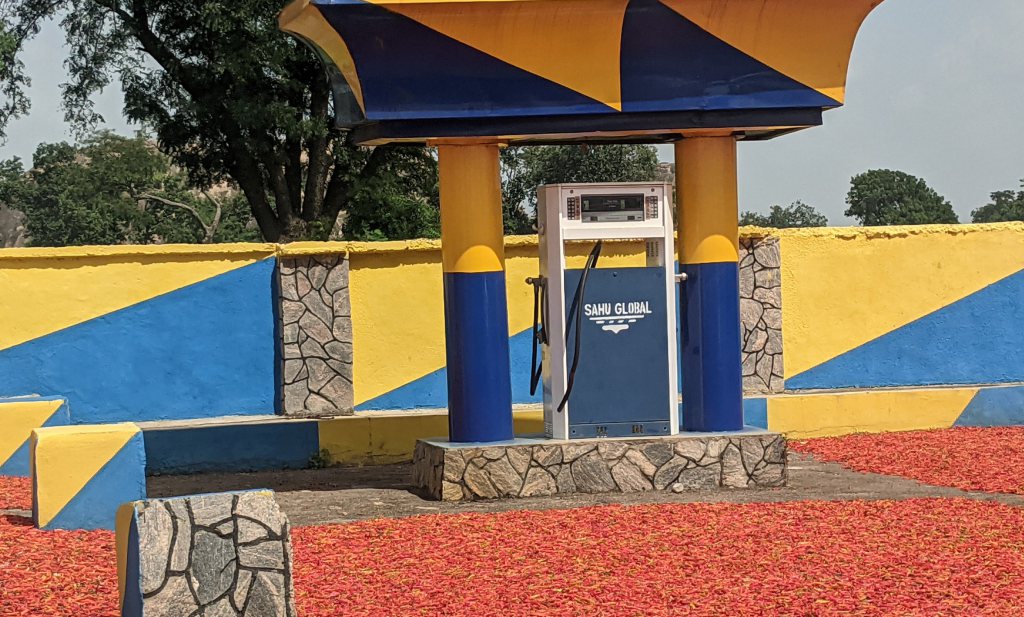The issue of food safety cannot be overemphasized as this is the main foundation of food security. Food should be a medicine to the body; providing and releasing the necessary ingredients needed to build and repair the body at all times. However, when unsafe food is consumed, it would rather do more harm than good.
Therefore, it is important that food producers are intentional about HOW food is produced and handled at the production level in order to preserve its safety. This is essential because food would only be food when it is safe for consumption.
Sadly, there are several bad practices that are being engaged by farmers and other food handlers that make food unsafe. One of these practices can be observed during drying (especially for fruit and vegetables). In my little years of working with smallholder farmers, drying has been a major source of contamination to food (asides farmers who had been trained on GAPs and are ethical). Smallholder farmers would rather dry produce (especially produce that requires drying) on a bare floor without thinking of the effects on the health of the consumers. This practice is an age-long one and needs to be stopped. Farmers should be provided with the required training and resources to ensure that farm produce is properly dried using a befitting drying medium that won't compromise the safety of the products. Also, we need to engage our local authorities to sensitize the farmers on the appropriate ways in drying of food products and peradventure, institute laws that prohibits drying on bare floor which should be punishable by fines.
The number of cases of food borne diseases is increasing, and it is sad that this practices have been left unchecked for too long. It is pertinent that stakeholders come together to address this issue at the different levels in order to ensure that the integrity of the food is protected at all cost. Food is sacred, and its sacrity should be protected as it moves throughout the value chain, especially at the production level where it is the foundation. This is because when food safety is compromised at production, it is impossible to reverse. Therefore, we all must be involved to ensure that smallholder farmers handle food correctly and are consciously aware of the impact of their practices on the health status of consumers. In closing, they need to be intentional on how food would be produced and handled going forward.
Sadly, there are several bad practices that are being engaged by farmers and other food handlers that make food unsafe. One of these practices can be observed during drying (especially for fruit and vegetables). In my little years of working with smallholder farmers, drying has been a major source of contamination to food (asides farmers who had been trained on GAPs and are ethical). Smallholder farmers would rather dry produce (especially produce that requires drying) on a bare floor without thinking of the effects on the health of the consumers. This practice is an age-long one and needs to be stopped. Farmers should be provided with the required training and resources to ensure that farm produce is properly dried using a befitting drying medium that won't compromise the safety of the products. Also, we need to engage our local authorities to sensitize the farmers on the appropriate ways in drying of food products and peradventure, institute laws that prohibits drying on bare floor which should be punishable by fines.
The number of cases of food borne diseases is increasing, and it is sad that this practices have been left unchecked for too long. It is pertinent that stakeholders come together to address this issue at the different levels in order to ensure that the integrity of the food is protected at all cost. Food is sacred, and its sacrity should be protected as it moves throughout the value chain, especially at the production level where it is the foundation. This is because when food safety is compromised at production, it is impossible to reverse. Therefore, we all must be involved to ensure that smallholder farmers handle food correctly and are consciously aware of the impact of their practices on the health status of consumers. In closing, they need to be intentional on how food would be produced and handled going forward.
Related



